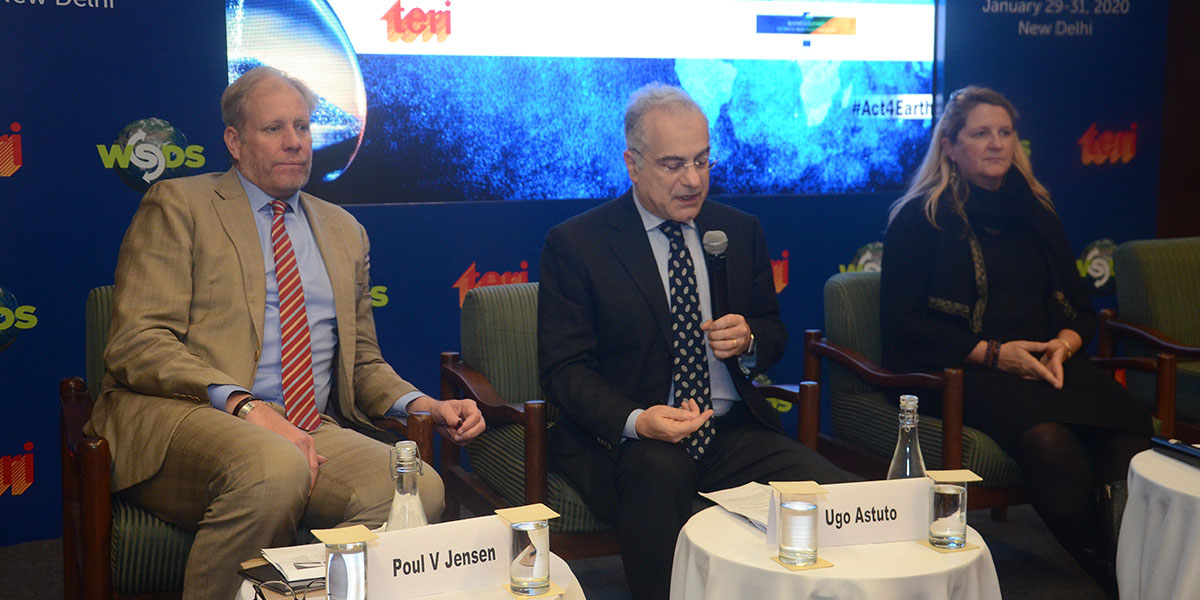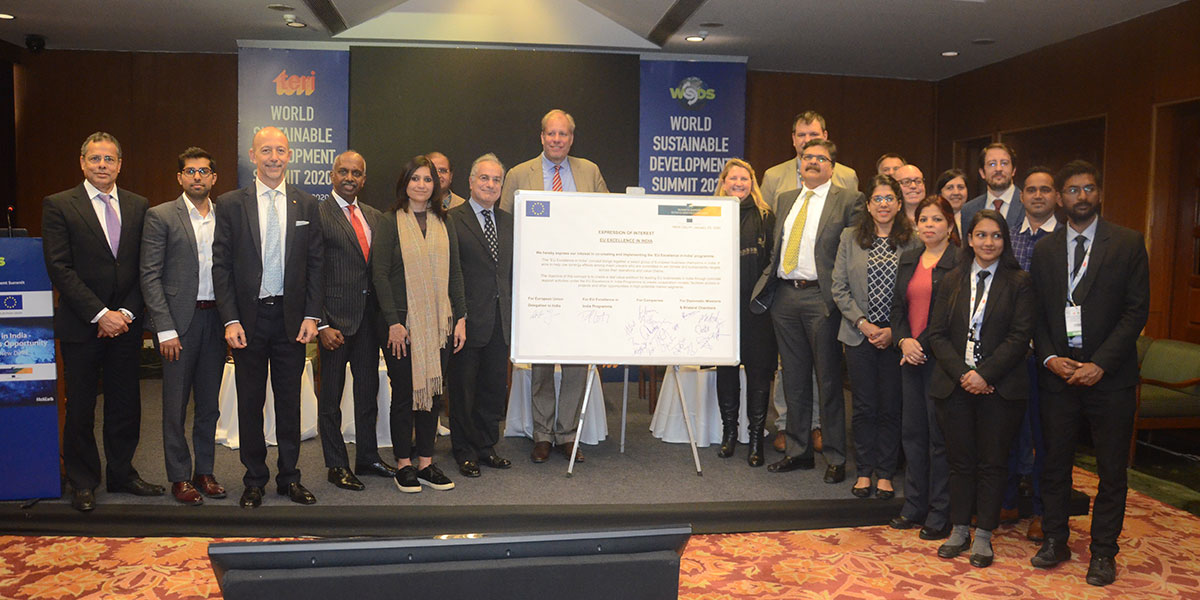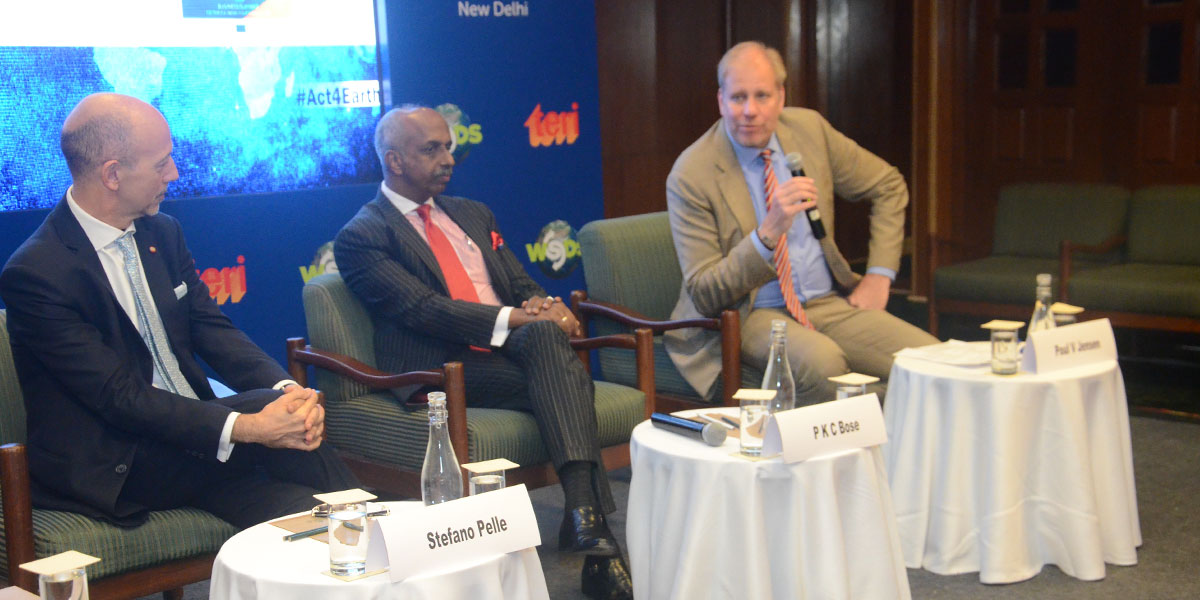Green business models and cleantech solutions to drive India-EU business collaboration

To effectively establish a circular economy – reducing waste, recycling resources, efficiently using energy – can require unprecedented co-operation. Industry, sectors, even countries and regions will have to come together to share knowledge and learn from each other's experiences.
A step towards this co-operation was taken today at WSDS 2020 with the launch of the EU Excellence in India Initiative. This program seeks to bring together business champions to enable greater bilateral collaboration between Indian and European companies that implement sustainability and climate actions.
Launching the initiative, H.E. Mr Ugo Astuto, Ambassador of the European Union to India said "We're happy to announce the EU Excellence in India programme. It brings together business champions and will enable greater bilateral collaboration between Indian and European companies that implement sustainability and climate actions. Global awareness and collective engagement and action are important to drive sustainable transformation."
Senior representatives from leading European companies already active in India signed an expression of interest committing to create cooperation models and facilitating access to projects and other opportunities in high-potential market segments along with their Indian counterparts.

The initiative is part of the ongoing Business Support to EU-India Policy Dialogues Project being implemented in India by the European Business and Technology Centre (EBTC). Giving an overview and outlook on roadmap 2020 for the EU Excellence in India, Mr Poul V. Jensen, Team Leader Business Support to EU-India Policy Dialogues Project & MD EBTC, said "The programme's activities are co-created by the businesses and strive to help discover synergies and opportunities for mutually beneficial sustainable economic growth."
Key case studies were shared with the gathering that included representatives from the Indian Government, think tanks and industry. These case studies highlighted the synergy effects among major players, who are committed to set climate and sustainability targets across their operations and value chains.
Mr Souvik Bhattacharjya, Fellow and Associate Director, TERI, spoke about the Goa State Strategy on Resource Efficiency and Circular Economy that had been prepared under the European Union-Resource Efficiency Initiative. This strategy mainstreams material resource efficiency and circular economy in priority sectors — tourism, construction with a focus on construction and demolition waste, and marine litter with focus on plastics. "The suggested policy recommendations and the proposed action plan offer a range of opportunities for cooperation between Goan and European public and private enterprises to facilitate collective learning, technology transfer and exchange of lessons learned in all the three focus areas", he said. The proposed strategy is expected to enable the state's convergence with India's Resource Efficiency strategy and help in meeting some of the SDGs.

Providing a perspective from Industry, Mr Amrendra Kumar, Head, Steel Recycling Business, TATA Steel Limited, spoke about how companies from across the world, especially those in Europe are changing track and going from linear to the circular economy. Highlighting the ways which Tata Steel has undertaken for making the process of steelmaking more energy-efficient and environmentally sustainable, he said, "In the case of TATA Steel, we have been making steel from scrap at our plants in Africa. It has been tried and tested in Europe, and that's the circular way of making steel that will become the way for the future."
According to a TERI analysis, applying the 6R principles of a circular economy, ie, reduce, reuse, recycle, redesign, remanufacture, refurbish, can bring down India's steel and aluminium scrap imports to zero. Not only will this cut down the country's import bill, it will also lead to new enterprises carrying out new activities. Further, it will result in a huge reduction in millions of tonnes of slag and solid waste generation and CO2 emissions, all of which together are a lethal cocktail, ruining our environment today.

